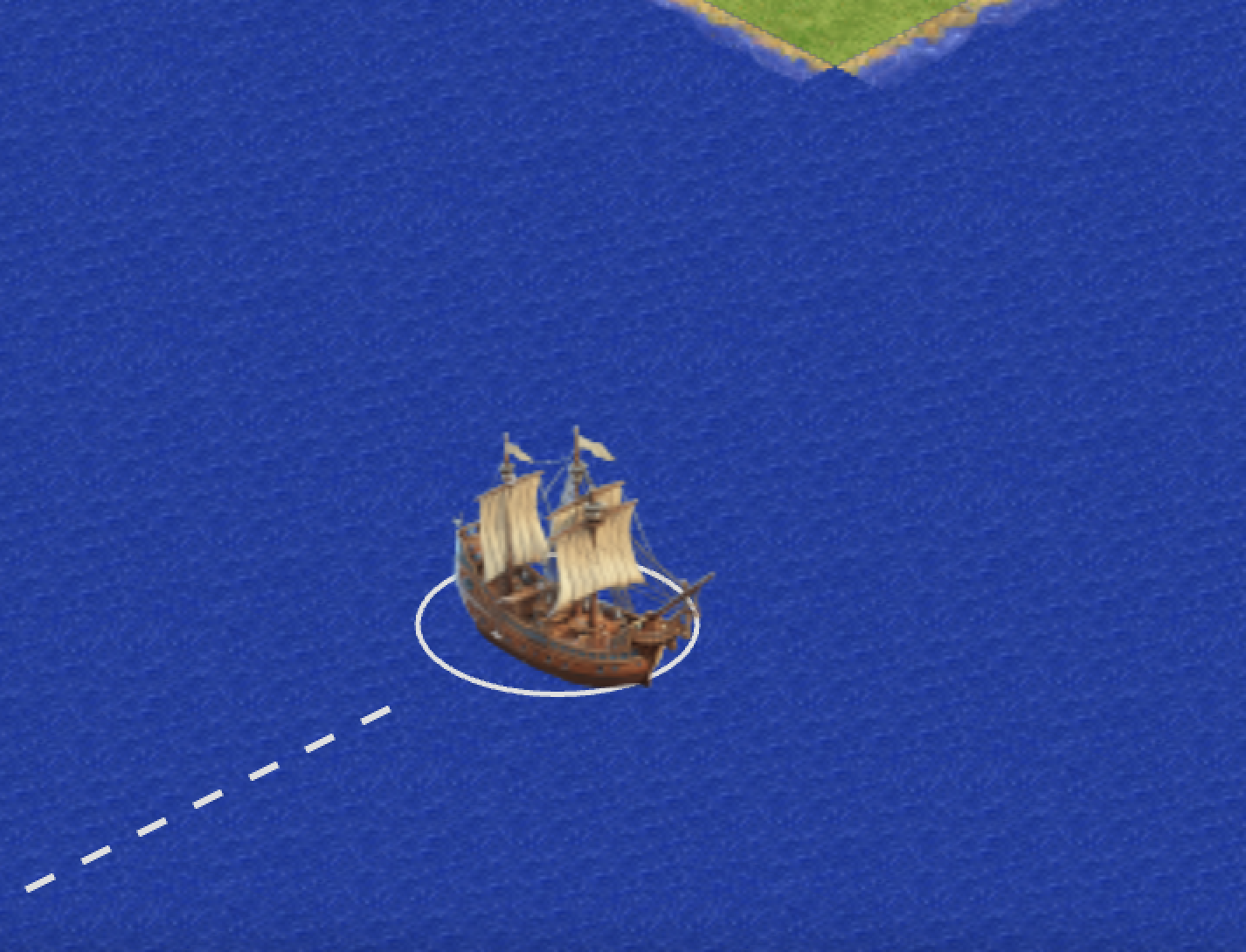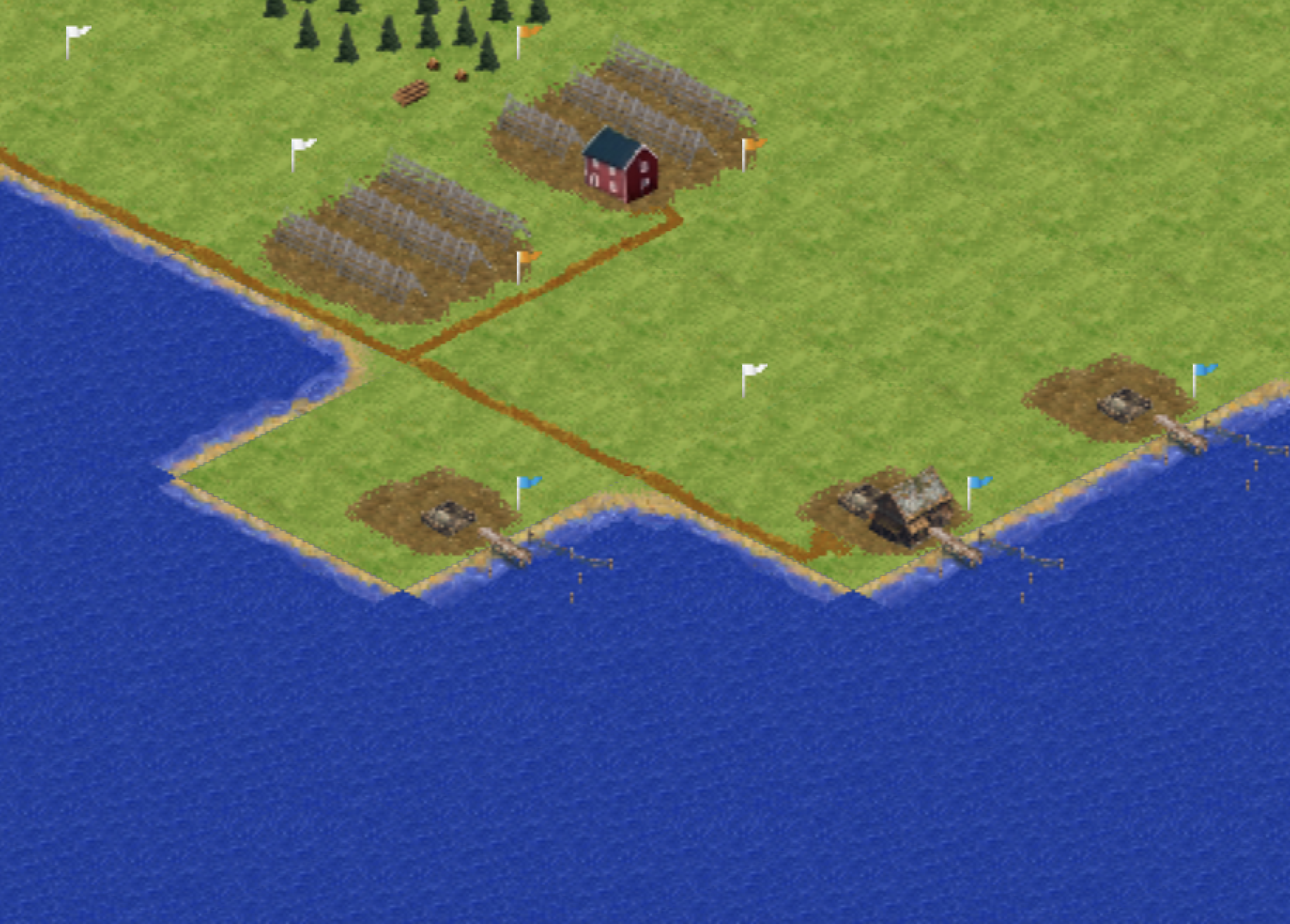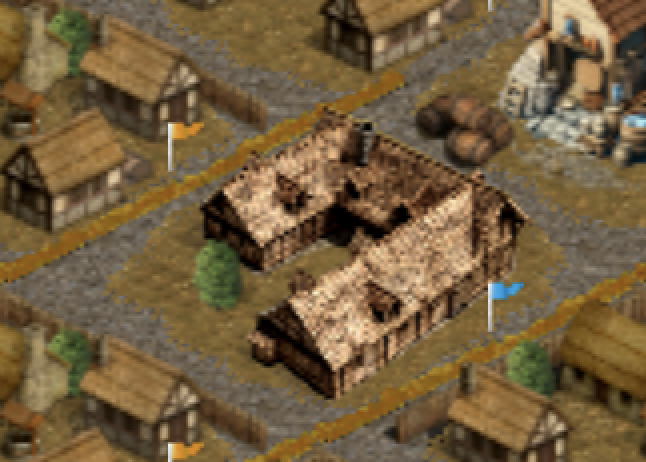Mercantile competition
Mercatorio is a browser-based economy simulation game set in medieval times. The game runs at hourly ticks with players interacting through economic competition and cooperation, chasing financial success and, ultimately, prestige.
Production and logistics are core elements in Mercatorio, and will be recognizable to players familiar town-building or economy simulation games, like the great games of the Anno and Victoria series, with chains of production buildings and production methods refining raw materials into more valuable finished products, and ships or carts bringing raw materials in or shipping the finished products to their markets.
What is new in Mercatorio is a mercantile environment where prices and product availability are determined exclusively by the supply and demand of other market participants, akin to how modern mercantile exchanges function.
In addition, and maybe in contrast to this, Mercatorio strives to simulate the medieval economy as historically accurate as possible, with buildings, products and production methods all modeled after the activities of the era. Put this together and you get a game with a lot of depth and possibilities to explore, hopefully offering an interesting and challenging experience.
See more at mercatorio.io
The first larger update during season 1 will go live tomorrow June 1st just after 16:00 CET. The update has a maritime theme, with two new maritime buildings (the fishing shack and sail loft) and a new ship (the hulk), while also making several additions and adjustments across other aspects of the game.
New content
The new hulk will become the largest and most advanced ship in the game, with a longer range (2222) and larger cargo capacity (1000) it will be ideal for long distance or bulky trading. Meanwhile the cog has gotten its capacity reduced from (800 to 600) and its operating cost lowered (less rope).

It requires the new product "sails" both for construction and operation, which will be produced at the new building, the sail loft, by maritime journeymen and masters.
At the lower end of the maritime class the new fishing shack makes an entry, allowing trapping of fish near the shore.

Trapping is low productivity compared to fishing from boats, but requires less skill and investment and works anywhere there is water, not just where there is a "fish" resource.
Tenants
The peasant and farmstead mechanics have been expanded and generalized into the concept of tenants. A tenant can be a peasant household on a farmstead, or workers living in the new boardinghouse.

Each boardinghouse houses 5 tenant households, which are unlocked with increasing prestige as before. Being a town centre building, the workers here can not feed themselves, but in return they have more labour freed up for use in your other activities.
Bot and commoner behaviour updates
The algorithms guiding bot gentry sustenance consumption and commoner sustenance satisfaction are changing. This will be gradual changes over several days to lessen the market impact.
Bot gentry will now have the same sustenance model as human players, picking products based on current market conditions and their desire and ability to pursue higher prestige. The goal is to give more realistic competition and remove situations where bots are willing to overpay significantly for products in short supply, when they could just switch to a cheaper substitute.
For commoners the goal is to offer more transparency into how their sustenance affects labour offered and town growth. Once the switch to the new algorithm is completed, the town growth impulse will be broken down by sustenance group and displayed. Historical view of their sustenance situations and town growth is following shortly thereafter.
Balancing and production method additions
The largest balancing change this time is relating to ox power. Ox power output from pastures is increasing but at a significantly higher unit cost. The higher level farming methods of grain and flax are also updated to consume more ox power, while smelting of iron and refining of steel will use less.
New production methods
- build cog 2
- build hulk 1
- sew sails 1
- sew sails 2
- trap fish 1
- trap fish 2
- trap fish 3
- make nets 3
- fishing 3
- service 2 (at boardinghouse)
- service 3 (at boardinghouse)
- service 4 (at boardinghouse)
- refine steel 1b (w/ harnesses)
- refine steel 2b (w/ harnesses)
- shear sheep 3 (w/ blades)
- burn tiles 2 (at ceramic kiln)
- make wine 3 (w/ honey)
- make medicine 2 (w/ honey)
- mine lead 2b (w/ pickaxe)
- mine lead 3b (w/ pickaxe)
- mine gold 1b (w/ pickaxe)
- mine gold 2b (w/ pickaxe)
- mine salt 3 (w/ pickaxe)
- sawing 3 (w/ harnesses)
- sawing 4 (w/ harnesses)
- make harnesses 2b
- craft belts 4
- craft scythes 2
Production method adjustments
- hunting 4 and 5: produces more meat and less hides
- yoke ox: now requires labour, ox power output doubled
- grow grain/flax: consumes more ox power, less tools and ploughs
- breed cattle: increased labour consumption
- build snekkja/cog: more timber use and labour, less cloth and rope
- craft furniture/windows: more timber use, less labour
- smelt iron/refine steel: less ox power, more labour
- boil dye 2: slightly less labour
Household adjustments
- Church protection no longer lowers building and transport cap
- Apprentice cost is reduced from 50% to 25% of base consumption of non-luxuries.
Other changes
- Toolworks construction cost increased
- Sawmill transmission upgrade cost increased
- Farms, pasture, logging and hunting radius increased by 1
- Fishing radius increased by 1
- Town sale of carting increases price from 0.60 to 0.90, with the goal of making this less economically relevant
- Storehouse and warehouse capacity increased (from 2k to 3k and from 10k to 12k, from 15k to 16k with crane)

Cutting through terrain
NewsBreaking down the complexities of moving through some of the rougher areas of Mercatorio, as well as the tools and automation available to assist you.

Trading on regional markets
NewsLocal markets for timber, regional markets for ships, funding and reservations for pending bids and asks. Paying the sticker-price to get that shiny snekkja...

Season 1 kicking off tomorrow
NewsRegional markets makes it easier to find counter-parties for buying or selling ships and carts. Also, season 1 will have bees.

You can't take your money with you
NewsEven the most successful and wealthiest merchants can't take their fortune with them when the season ends. So instead they build ... churches















